March 2019 Humphrey Secretariat Post
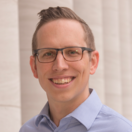 Molo! Sawubona! I mean hello! I’m Jon, from South Africa: the southern-most country among 50+ on the African continent, which is the second largest continent in the world.
Molo! Sawubona! I mean hello! I’m Jon, from South Africa: the southern-most country among 50+ on the African continent, which is the second largest continent in the world.
South Africa is a country of ~55 million people, with a national history very similar to the United States, in terms of: colonisation (by the Netherlands then Britain), genocide of indigenous peoples, settler-colonial domination, slavery across centuries, institutionalised racism and legislated racist segregation, and today, formal liberal democracy…
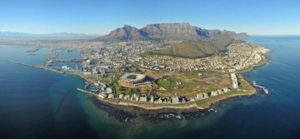
In South Africa, formal democracy is symbolically tied to the annual Freedom Day national holiday, established to commemorate the first one-adult, one-vote election on 27 April 1994. But South Africa’s constitution is a lot more progressive than that of the US: the bill of rights asserts rights to dignity (also 12 official languages), equality (outlawing discrimination), bodily integrity, and access to housing and healthcare, as well as the imperative of redress; and outlaw of the death penalty; and apex court judgments have outlawed the death penalty, legitimated abortion; civil unions including for homosexual couples; and, recently, marijuana for personal use. South Africa also has a set of social grants for child-care, disability, and old-age (but not unemployment). In these political and legal terms, for which generations of South Africans struggled and many died, South Africa is a fundamentally different country since 1994.
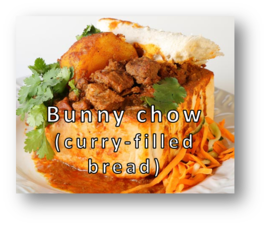
However, South Africa is, simultaneously, also a very similar country to what it was before 1994. South Africa has the world’s most extreme measured income inequality (with wealth inequality estimated to be even more extreme). The vast income disparity between “races” which has increased after 1994 (average white South Africans’ incomes have grown multiples more than average black South Africans’ incomes). To be black in South Africa is still, overwhelmingly, to be poor; and to be poor is to be black. Unemployment is chronically near 40% (higher among youth). The structure of the South African economy is substantially unchanged: it remains structured around mining (top exports are all minerals; with consequent consequences for the ecosystem) and is slanted towards finance, real estate, and services. And where and how people live, whether in urban or rural areas, remains profoundly segregated. In short, society structures many people’s lives as disposable from the perspective of those with power. Thus, on 16 August 2012, thirty-four mineworkers (all black men) who were on strike for a living wage (under $1,000/month) were massacred by police of the democratically-elected majority-black African National Congress government (near their mine; the mine’s board included the former mine-union leader now president of the country).
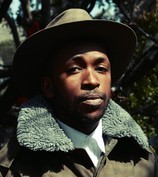
South Africa is a country of freedoms and formal democracy born of struggles. South Africa has rich traditions of musical cultures, including world-renowned jazz and diverse domestic genres (from maskanda and mbaqanga to kwaito, which has affinities with house: here’s Spoek Mathambo). South Africa is home to multiple world heritage sites: from the “Cradle of Humankind” that holds fossils of human origins, to the majestic Drakensberg Mountains (part of the Great Escarpment of Southern Africa). And animal and plant life are also richly diverse – including a unique floral kingdom found nowhere beyond Cape Town’s surrounds. But – and – South Africa is also a country that makes it exhausting and painful and deadly for many people to live as people; as human. South Africa is the epicentre of the global HIV/AIDS pandemic (~19% of adults are HIV-positive) and the largest state treatment programme – achieved through struggle. Relatedly, South Africa has some of the highest levels of sexual assault and gender-based violence in the world, outside active war zones.
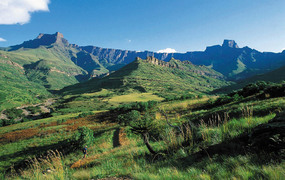
Education in general, and schooling specifically, is central to South Africa’s social structure and how this society reproduces itself through generations. In the narrow terms of international subject assessments, South African’s schooling outcomes are near the worst in the world. Of course, schooling also remains substantially segregated. These are live legacies of the establishment of mass state schooling for the enrolment of most black students very swiftly under the height of the racist apartheid regime. Schooling and education remain central terrains of oppression in South Africa.
My team’s work, over the six years before coming on this fellowship, has been learning-by-doing how to improve the public school system at multi-district scale, by guiding and supporting professionals to improve their daily practices, together – so that teachers have meaningful, useful support and learners have greater opportunities to learn. In the process, our team has been building an organisation, the Programme to Improve Learning Outcomes (PILO), an NGO partner to government & unions for school-system improvement. I am lucky to have been a core member, after being recruited as the third full-time employee. My primary role has been leading the design, coordinated practice, and learning and supporting districts’ central office professionals (superintendents, principal supervisors, curriculum specialists, data-focused staff).
During these years, I’ve also been profoundly engaged and affected by the struggles across all South Africa’s universities, for fee-free, quality, public higher education for all; for decolonization of education and knowledge; and for the inclusion of outsourced workers as part of university communities. At the height of struggle strength, students and workers shut down all university campuses country-wide.